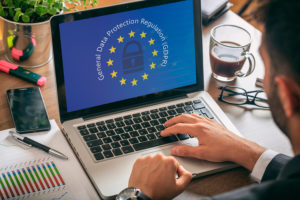
Individuals, companies, or businesses that have a presence in the EU or, if no presence, offer goods or services to, or monitor the behavior of, individuals in the EU need to comply with this law. Please consult with your own legal counsel about whether GDPR applies to you and your business.
What do you need to do differently to comply with GDPR?
If the GDPR applies to you, there are various obligations you will need to comply with in order to continue doing business with your customers from the EU. Luckily, not all of these obligations are new, so you should be complying with some of them already.
The most important differences in this context are as follows:
- More information about your use of personal data must be communicated to your customers. You should make sure that your privacy notices/policies are updated to reflect the new requirements of the GDPR, including setting out the purposes of your processing personal data, how long you are retaining such data, and what legal basis for use of personal data are you relying on.
- You should determine the legal basis for your use of personal data: If you are relying on consent to use your customers’ data you should ensure that the consent you have meets the new requirements of the GDPR (more details on this below). Please note that sending marketing emails or showing promotional content in any form to your customers may require, in certain circumstances, prior opt-in consent from them. As a reminder, you have already agreed through acceptance of our terms of service to lawfully obtain and process all personal data appropriately and have attested that you have permission to expose your customers to promotional content.
- You will also need to comply with the rights provided to individuals by the GDPR. See section above “What rights does the GDPR provide to individuals?” for details.
To the extent that you have these obligations, we have tools in place to help support your compliance efforts – we’ll get into some detail about this below. These include methods for you to obtain consent on your website for all visitors and to show promotional content to your existing customers, as well as ways for you to confirm and document consent for new ones, too.
You should consult with your legal counsel on the above and your other obligations under GDPR.